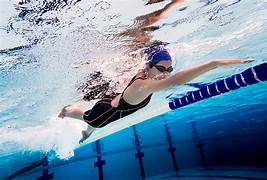
Swimming professionally is more than just a job—it’s a way of life. For those who choose this path, the pool becomes a second home, and every stroke is a step toward achieving excellence. Turning swimming into a career requires rigorous training, overcoming significant challenges, and embracing the unique rewards that come with the sport. Though it demands discipline and sacrifice, it also offers a sense of fulfillment that few other professions can match.
The Training Regimen
To swim for a living, athletes commit to an intensive training schedule that tests their endurance, strength, and mental resilience. Professional swimmers typically train six to seven days a week, often with multiple sessions each day. These sessions include both in-pool training and dry-land exercises designed to build muscle, flexibility, and cardiovascular endurance.
In the pool, swimmers focus on perfecting their technique, increasing speed, and improving efficiency. This involves refining strokes, mastering turns, and optimizing starts to gain every possible advantage during races. Training often involves swimming several kilometers daily, along with drills targeting specific aspects of performance, such as breath control or kick power.
Outside the pool, strength training and cross-training activities such as yoga or Pilates play a crucial role. These activities enhance core strength, flexibility, and overall body control, which are essential for maintaining the fluidity and precision required in competitive swimming.
Nutrition is another critical component of training. Swimmers consume carefully planned diets rich in carbohydrates, proteins, and fats to fuel their bodies for intense workouts and aid recovery. Proper hydration and sleep are equally important, as they ensure the body and mind are prepared to meet the demands of professional swimming.
The Challenges
Swimming for a living is not without its difficulties. One of the most significant challenges is the physical toll it takes on the body. The repetitive nature of swimming can lead to overuse injuries, such as shoulder impingements or knee problems. Managing these injuries while maintaining peak performance requires careful planning and often the support of physiotherapists and medical professionals.
Mental challenges are equally daunting. The pressure to perform at the highest level can lead to stress and burnout. Professional swimmers must learn to stay motivated and resilient, even during periods of poor performance or injury. Balancing personal life with a demanding training and competition schedule can also be challenging, as the sport often requires long hours, extensive travel, and limited downtime.
Financial stability can be another hurdle, especially for swimmers who are not yet competing at the elite level. Sponsorships and prize money are often the primary sources of income, and securing these can be competitive and uncertain.
The Rewards
Despite the challenges, swimming for a living offers unique and fulfilling rewards. For many swimmers, the opportunity to represent their country on the international stage is a dream come true. Competing in events like the Olympics or World Championships brings a sense of pride and accomplishment that is unmatched.
The sport also fosters personal growth, teaching athletes discipline, time management, and perseverance. The camaraderie among teammates and the global swimming community creates a supportive and inspiring environment.
Financially, elite swimmers can earn substantial income through sponsorships, endorsements, and prize winnings. Beyond the monetary rewards, the joy of doing something they love every day makes the effort worthwhile for many professional swimmers.
Conclusion
Swimming for a living is a demanding yet rewarding career. It requires a rigorous training routine, the ability to overcome physical and mental challenges, and a passion for the sport. While the path may not be easy, the rewards—both tangible and intangible—make it a fulfilling journey for those who dive in wholeheartedly. For professional swimmers, the pool is more than just water; it’s a place of endless possibilities and personal triumphs.